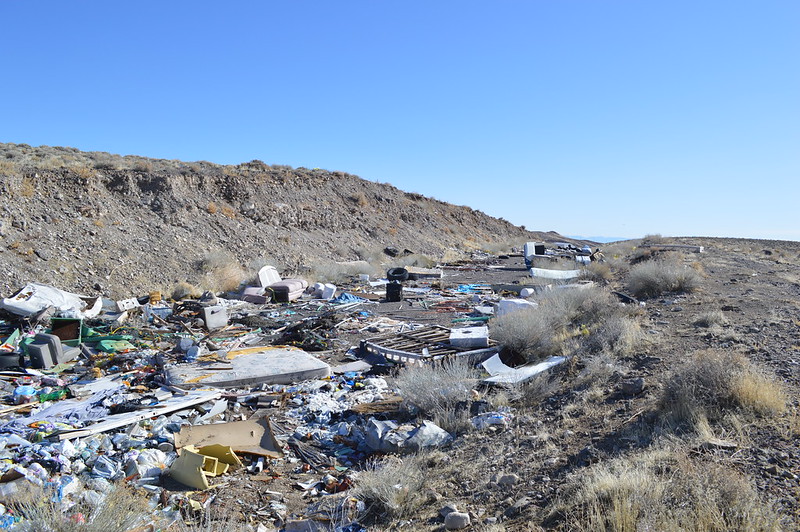
TRANSMUTE THE ANGER TRIFECTA (Another IPS)
Another IPS (Inner Peace Symptom): an understanding that anger energy can be used to unify rather than divide. [Anger is a wake-up call, a signal that change is needed. If you can respect other people’s ways of dancing while working towards making room to do your own dance, the anger can lead to more understanding, communication, and caring. Not easy, but doable….]
Three ‘R’s make up the Anger Trifecta: Resentment, Rage, and Regret. We all know that. And almost every human that’s ever lived has experienced these emotional states.
How not? They are body- and gut-reactions to Life-Its-Own-Self and one of the complex internal body working systems that kept our survivor ancestors alive long enough to produce each and every one of us bobos.

Smarty Pants who study social interactions among us humans as well as every wise guy and every little judgy old uncle or aunty and P.C. advocate that ever lived have spent all kinds of time telling the rest of us slobs how we are supposed to handle the effects of our own personal Anger Trifecta so that we don’t blow up this consensus-world we are building together.
The world keeps on spinning. We humans keep on packing ourselves onto it and we keep tripping all over each other’s feet.
Because the Anger Trifecta is such a potent part of each and every one of us, the stacks of social behavior “shoulds” and “oughts” and the parameters and restrictions and constraints on the actions that arise out of this very human emotional stew has gotten huge.

Anger really is a built-in, organic, specialized information-gathering mechanism that’s focused on personal survival.
ANOTHER PARADOX, ANOTHER PROBLEM
Here is an extraordinary little YouTube video, “Learning To Be Angry,” which was uploaded in 2020 by the School Of Life. It explains a bit about why developing the ability to express our own “rightful sorrows” is an important skill to develop and learn how to use.
According to the video, “For every person who shouts too loudly, there are at least twenty who have unfairly lost their voice….”
To me, at least, it seems that the absence of all those other gone-silent voices and their different perspectives of Life-Its-Own-Self add up to an incalculable loss in the possibilities for meaning and mana that we humans can pursue in our consensus world.
This does not seem like a good thing to me.
Hmmm….
Maybe some D.I.Y. life-hacks for dealing with the individual components of the Trifecta might help.
RESENTMENT AS A TEMPER-ATURE GAUGE
Resentment is very often a sign that you are feeling the effects of an unmet need that has consistently not been resolved or satisfied.

At some point or other, at least some of these important-to-you needs are not going to be met by your own self or by the other people in your life.
When that happens, it hurts. It can make you feel sad and bad and pressed-upon. Irritation, annoyance, and indignation are likely.
Because it is so very hard to look at what hurts you and makes you feel vulnerable, you may not be able to look at your unrecognized fears and the unresolved pains and griefs you’ve experienced in your life.
Resentment is a kind of nebulous, undefined cover-up for all of the really crummy stuff you’d rather not look at.
If you just “can’t get no satisfaction” and you start feeling frustrated that these same needs are not being met over and over again no matter what you try to do about it and regardless of how long you wait for the situation to resolve itself, this can become problematic.
Also, it seems, ignored or set-aside resentments are cumulative.
The older you get, the more resentments you acquire (unless you are good at letting them go). This pile of resentments can breed more and more connected resentments that can work themselves around into becoming triggers for episodes of full-blown rage.

All kinds of systems – scientific, spiritual, and heart-based — have been developed that can work for you, and lots of people have been trained to help you get yourself past the resentment-collecting when it starts to adversely affect you in your life.
I did find a really good YouTube video, “Anger Management: Warning Signs + Anger Thermometer,” which features Woody Schuldt, LMHC talking about how you can identify your own personal warning signs. It was uploaded in 2019 by Therapist Aid.
Using this “thermometer” can help you notice. It can send up signals that you need to pay attention when you are starting to feel the nudges of some resentment or other.
If you look at the incidents that start the resentment and temper build-up from your ground-zero calmness, maybe you can start to figure out why you are getting mad and where your trigger points happen.
If you need more ideas for the physical effects of the rise of your temper, you can click on the button below to access a post, “Recognizing and Owning Your Anger,” on the Affordable Quality Counseling website. Dr. Paul Standal and his team present a list of common signs of anger and upset as well as a checklist that details indications for hidden anger.
RAGE AS RESEARCH
Spiritual teacher-author Eckhart Tolle tells us, “Where there is anger there is always pain underneath.”
That is a truth.
One of the very best how-to’s for using anger as a gude to finding your own self-expression can be found in a post on the Tiny Buddha blog by life-coach, psychologist and healer Anne K. Uemura.
As she says, “Embracing anger may be counter-intuitive, but in doing so you become aware of old, unconscious reactive patterns. In becoming aware of these patterns you free yourself to choose from a place of power.”
Click on the button below to access that post.
I think her strategies and tactics make a lot of sense. (Also, I’m here to tell ya they do work.)
However, for all of that, I do have to admit that my own inclinations are delineated by that icon of icons, Edna “E” Mode, in Disney/Pixar’s silliness, “The Incredibles.”
In this 2011 YouTube video clip uploaded by Pixar, that quintessential feminist gives the self-pityful Elastigirl some right-on relationship advice….
REGRET AS A STEPPING-STONE
Science writer Daniel Pink is “a recognized authority on the science of motivation, the science of timing and the business zeitgeist.” His bio on the Thinkers 50 website says so. I have been a fan for years.
His 2022 book, THE POWER OF REGRET: How Looking Backward Moves Us Forward, is the result of his analysis of more than 16,000 stories he collected in his World Regret Survey.

The regrets Pink points to are as follows:
- FOUNDATION REGRETS. These are the regrets that revolve around a failure to behave like a responsible person and includes the bad habits that have negative long-term consequences for life. Things like overspending, skipping school, neglecting your health and all the other stuff the Bigs used to tell you were important for a “good life.”
- BOLDNESS REGRETS. These come from being fearful and over-cautious. They are the you-coulda-but-you-didn’t ones that comes from too much risk aversion.
- MORAL REGRETS. These are centered on the other people that our actions and failings have hurt.
- CONNECTION REGRETS. These regrets encompass lost relationships with family members, friends, colleagues and community. It’s the sad that comes from finally understanding that you really don’t get a second chance to make new old friends and the pain of knowing that you messed up in your dealings with the heart-people in your life.
Of all the regrets, the last one – connection – turned out to be the most common experience in Pink’s survey.
In his book Pink does touch on strategies to cope with the regrets we already have.
Not keeping the things bottled up and hidden away is the first of the strategies. Acknowledging your bad and figuring out what you did and how that managed to screw things up for you allows you to take a hard look at even the most painful of the regrets you carry.
The trick to this, Pink tells us, is avoiding hitting yourself over the head over and over again with all the bad stuff. Self-forgiveness needs to happen…and that one can take a good long while to get through. If it’s bad enough, you might even want to ask for help.
This self-disclosure can be a most private thing locked in the pages of your journal. And if you can’t stop beating yourself up, you can always go find somebody who can help you with your angst.
In all of this, you do have to recognize your errors and cut yourself some slack. (Eh! You are probably not the worst super-villain the world has ever seen. Stop being such a braggart, you!)

At the same time, Pink also advocates what he calls a “pre-mortem” every time you are in the throes of making some decision or other.
What you do for that is imagine the worst possible potential outcome that might arise if you make this or that one move that could compromise your values or wreck your future health and happiness.
None of this is new stuff, but it makes for good reminders about the lessons you’ve already learned and may help you find better ways to move in the future.
Here’s a poem:
GO GOOD, MY BRADDAH
You have your issues
And they push you –
This I know.
Your wants color the air around you
And perch on your shoulders
Grimacing at me like
A crowd of gremlins.
Their yammering fills up your ears,
Blocking out the words
Trying to climb in.
Their fingers cover your eyes,
Letting you catch glimpses only
Of the world around you.
Their fragrance clogs up your nose
So you can’t smell the scent of rejection,
The signals others send.
The taste in your mouth
Comes from the ashes
From the burning fire in your gut.
The gremlins have hold of you.
They’ve made a fortress all around you
Out of all the knives and smokes and mirrors
In your mind.
Nothing I can do or say can reach you
Through that shifting kaleidoscopic shield they’ve raised up.
It all gets lost in the flickering movement
Of your tumbling thoughts.
Auwe, brah!
No can, li’ dat.
Sorry, eh!
(Sigh!)
Go good, my braddah….
By Netta Kanoho
HEADER PHOTO CREDIT: “Sailing Into the Wind” by G. Lamar via Flickr [CC BY 2.0]
……
SOME OTHER POSTS TO EXPLORE:
(Click on each of the post titles below and see where it takes you…)
……
Thanks for your visit. I’d appreciate it if you would drop a note or comment below and tell me your thoughts.
12 thoughts on “TRANSMUTE THE ANGER TRIFECTA (Another IPS)”
I have not seen the three anger trifecta of resentment, rage and regret described like this before. But of course, reading it, it makes so much sense. We are not happy about something, so resentment starts building up until we are eventually so angry that is becomes rage. And then we feel sorry and guilty that we got angry, so regret sets in and we want to apologize for our angry behaviour.
And sometimes it is okay to be angry and get the negative feeling out, but we also need to learn to manage our anger. Going into a destructive rage and doing unlawful and socially unacceptable things, are not the way.
Thank you for sharing great reminders and a well written poem.
Thanks for the visit and for sharing your thoughts, LineCowley. I am pleased that the post resonated with you.
I fell in love with the word “trifecta” and I just HAD to use it in some phrase or other. The anger triad just worked perfectly. Hee!
Please do come again.
I found this site very enjoyable! Your writing style is relaxed and connected, with plenty of humor thrown in to keep your reader interested and engaged! It helps that the subject matter speaks to me as well… anger management is a struggle!
Pink seems to have an incredibly clear grasp of the forms of regret. Does the book go into a great amount of detail about how each form takes its toll? Short term and long term, I mean. Obviously, they can take on different shapes with each individual, but in general terms, I wondered if the specific forms had similar effects on people. Typical long-term effects will end up being a little ball of hate in the pit of your stomach and a permanently furrowed brow.
I appreciate your post! This is clearly a topic about which you are passionate!
Thanks for the visit and for sharing your thoughts, Chris. I am pleased that you found the post enjoyable.
Pink is an insightful thinker who writes with exceptional clarity, I think. The best thing I like about him is that he tends to favor the non-conventional (but effective) methods of walking that I find work best for my own self.
He gives good overviews and chooses great stories to tell that help to illustrate his points lucidly.
Please do come again.
Resentments are cumulative. This is a great line here.
I have always thought that it is not good to keep everything inside. Your voice has to be heard sometimes. Especially when you feel that it’s enough.
In my family, everybody except me used to think that you should be careful and not show your emotions. I’ve found out later that most people in my family are anxious. They had a lot of resentments too.
Thanks for the visit and for sharing your thoughts and your story, NoBossExperience. I do agree. Piling up all those resentments can make it really hard for you to talk sometimes. After a while everything that comes out of your mouth is hateful or slanted sideways because you’re choking on all that angst.
Getting it out of there before it turns into a really big pile is an awfully good idea, I say. You just have to make sure you’re not shooting daggers at other people when you do. (That one can cause a whole bunch of other problems. Oy!)
I have found that practicing speaking your piece in a peaceable way does help move all the gunk and garbage out of there.
Please do come again.
Through my own experience and those of my family, I have learned that if you are angry, you need to express it right away. If you let it fester, the resentment will build up and turn into rage.
It’s not good to let feelings bottle up inside. Better to speak your truth in a calm manner and express yourself before your trifecta turns into an explosion. Those bombs are hard to undo.
I agree, JarieLyn. Thank you for the visit and for sharing your thoughts.
Please do come again.
I enjoyed this article about the three ‘Rs’. I would not believe there were 4 stages of regret, but now I do and they make sense.
I do know someone currently going through some tough times, and when you mentioned how many people have created certain products to help these people get through these stages. It almost makes me wonder if they aren’t suffering from one of the 3 Rs instead of generalized anxiety.
Would you think peoples’ anxious state stems from Regret, Resentment, or Rage?
Good question, Jeremy. Myself, I think all of our emotions are all tangled up together. Fear and anxiety, I notice, do tend to pile up right along with the anger trifecta when you keep on stuffing all that gunk in the little corners of your body without releasing them.
In time, my own rage got so huge, I was scared to get into even minor confrontations because I’d go ballistic at the drop of a hat. Not good.
I started practicing a form of street-style kung fu that had a ch’i kung component. It really helped at one point in my life when the anger got huge in me. The movements and the energy management training helped me get the built-up anger out of my body physically.
My martial arts practice helped me develop the kind of equanimity people who do yoga talk about. (I never could get behind the yoga thing. Sitting still is not my forte.)
I am actually a lousy fighter because I hate hitting or hurting people and getting hit or hurt sends me off into bad head-spaces. However, learning to work with my body to release the tightness all that holding back was creating in me really helped me develop a deep-down calmness that is an enormous relief for me.
I don’t know if that answers your question. I only know what worked for me. (It also helped that I had a very good teacher who really was not into awards and trophies and the competitive aspects of the sport and was more into the healing aspects of the art.)
Please do come again….
What a very interesting topic for someone that has had anger management problems in the past. I love the term “anger trifecta”.
I found this very interesting. The angle that I’ve had in the past has always been with myself bought on by frustration. I will definitely read this article a few times. Many thanks
Brian, thanks for your visit and for sharing your thoughts. I am pleased the post spoke to you.
Please do come again.